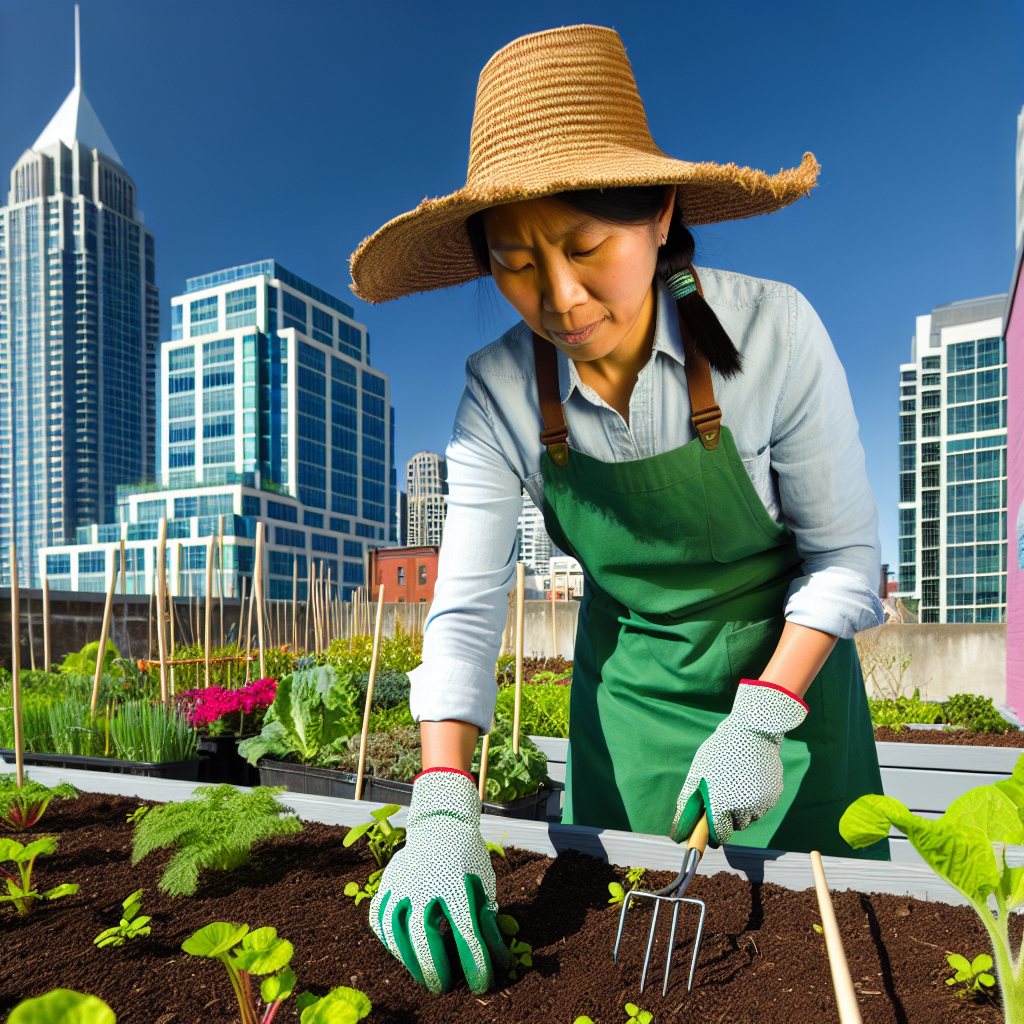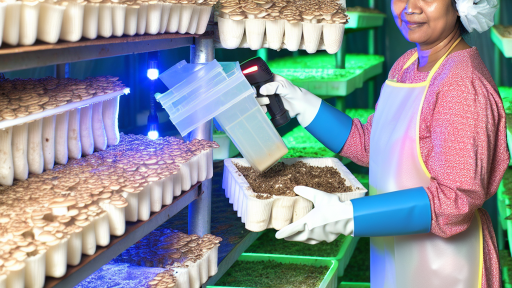Introduction to Soil Management in Urban Gardening
Soil management plays a crucial role in urban gardening.
It influences plant growth, health, and overall productivity.
Urban environments present unique challenges for soil management.
Limited space often restricts soil health approaches.
Moreover, contaminated or poor-quality soil can hinder growth.
In addition, urban gardeners must consider sustainability practices.
This section explores essential concepts of soil management.
Understanding Urban Soil Composition
Urban soil often varies significantly from rural soil.
It may contain a mix of organic material, minerals, and pollutants.
Identifying the composition helps inform management strategies.
Testing soil pH and nutrient levels can guide amendments.
Urban soil may compact over time, reducing aeration.
Enhancing Soil Quality
Improving soil quality enhances the health of urban gardens.
Amendments such as compost add nutrients and organic matter.
Moreover, mulch helps retain moisture and reduce weeds.
Transform Your Agribusiness
Unlock your farm's potential with expert advice tailored to your needs. Get actionable steps that drive real results.
Get StartedRegularly rotating plant varieties can prevent nutrient depletion.
Additionally, cover crops can improve soil structure and fertility.
Managing Nutrients Effectively
Correct nutrient management is essential for urban gardening success.
Observing plant growth can indicate nutrient deficiencies.
Organic fertilizers can enhance nutrient availability sustainably.
A soil test can help determine the right type and amount.
Implementing a balanced fertilization schedule promotes healthy growth.
Controlling Water in Urban Gardens
Water management is a vital aspect of soil care.
Urban gardens may have inadequate drainage due to impervious surfaces.
Using raised beds can improve drainage and root health.
Moreover, efficient irrigation methods reduce water waste.
Implementing rain gardens can help manage stormwater runoff.
Promoting Biodiversity
Encouraging biodiversity in urban gardens fosters resilience.
Diverse plantings attract beneficial insects and pollinators.
Incorporating native plants can enhance local biodiversity.
Additionally, companion planting can deter pests naturally.
Healthy ecosystems support overall soil health.
Importance of Soil Quality in Urban Environments
The Role of Soil in Urban Gardening
Soil quality significantly influences plant growth in urban gardening.
Healthy soil promotes robust root systems and enhances nutrient uptake.
In contrast, poor soil conditions can lead to stunted plants and lower yields.
Impacts of Urbanization on Soil Quality
Urbanization typically degrades natural soil resources.
As cities expand, soil often becomes compacted and less fertile.
This compaction restricts air and water movement in the soil.
Benefits of Maintaining Soil Quality
Healthy soil supports diverse plant and animal life.
Showcase Your Farming Business
Publish your professional farming services profile on our blog for a one-time fee of $200 and reach a dedicated audience of farmers and agribusiness owners.
Publish Your ProfileThis biodiversity enhances the overall ecosystem within the city.
Moreover, quality soil improves water retention, reducing irrigation needs.
Healthy soil also contributes to carbon sequestration, addressing climate change.
Testing Soil Quality
Regular soil testing is crucial for urban gardeners.
A soil test reveals pH levels and nutrient profiles.
Testing helps identify any contaminants that may affect plant health.
Improving Soil Quality
Urban gardeners can enhance soil quality through various practices.
Adding organic matter like compost enriches soil and increases fertility.
Crop rotation prevents nutrient depletion and promotes diversity.
Additionally, using cover crops protects soil from erosion.
Community Involvement and Soil Health
Engaging the community fosters a collective approach to soil management.
Workshops and events encourage knowledge sharing among urban gardeners.
Community gardens can serve as educational hubs for soil health.
Types of Soil Common in Urban Areas
Overview of Urban Soil
Urban soil typically differs from rural soil.
Human activity significantly impacts its composition.
Due to construction, many areas have disturbed soils.
Understanding these variations is crucial for successful gardening.
Clay Soil
Clay soil has very fine particles.
It is known for its high water retention.
However, it can become compacted easily.
Consequently, drainage becomes a challenge.
Adding organic matter improves its structure.
Sandy Soil
Sandy soil consists of larger particles.
This type drains water quickly.
While this prevents waterlogging, nutrients can wash away.
Amending sandy soil with compost enhances its fertility.
Silty Soil
Silty soil has a smooth texture and good fertility.
It retains moisture better than sandy soil.
However, it can become compacted over time.
Adding organic material can boost its aeration.
Loamy Soil
Loamy soil is a balance of sand, silt, and clay.
This mix provides excellent drainage and nutrient retention.
Gardeners generally prefer loamy soil for its versatility.
It supports a wide variety of plants effectively.
Contaminated Soil
Urban areas often face soil contamination issues.
Pollution may stem from industrial activities.
Testing soil for contaminants is essential.
If contamination is present, remediation techniques are necessary.
Strategies for Enhancing Urban Soil
Improving urban soil health is vital for gardening success.
One effective way is by adding organic compost.
Showcase Your Farming Business
Publish your professional farming services profile on our blog for a one-time fee of $200 and reach a dedicated audience of farmers and agribusiness owners.
Publish Your ProfileCover cropping can also enhance soil structure.
Regular mulching prevents erosion and retains moisture.
Lastly, practicing crop rotation keeps the soil nutrient-rich.
Uncover the Details: Urban Gardening Tools Every Farmer Needs
Techniques for Soil Testing and Analysis
Importance of Soil Testing
Soil testing is crucial for gardening success.
It helps identify nutrient deficiencies in the soil.
Additionally, it assesses pH levels, affecting nutrient availability.
Effective gardening relies on understanding soil composition.
Types of Soil Tests
- Essential plant nutrient tests evaluate nitrogen, phosphorus, and potassium.
- pH tests measure the acidity or alkalinity of the soil.
- Organic matter tests assess the amount of decomposed plant material.
- Soil texture tests determine the proportions of sand, silt, and clay.
Conducting Soil Tests
Begin by collecting soil samples from various locations.
Make sure to remove debris and plant material from the samples.
Next, follow the instructions provided with your soil test kit.
Mix the tested soil with the appropriate reagents as instructed.
Once completed, compare results with standard values for guidance.
Understanding Test Results
Analyze nutrient levels based on test results.
Low nutrient levels indicate the need for fertilizer applications.
High nutrient levels may require soil amendments or reduced fertilization.
Adjust pH to suit the specific plants you wish to grow.
Follow-Up Actions
After testing, consider adding compost to improve soil quality.
Regular amendments encourage healthier plant growth.
Furthermore, retest the soil annually for ongoing success.
Keep records to track changes in soil health over time.
See Related Content: Vertical Gardening Solutions For Small Spaces
Organic Matter and Its Role in Soil Health
Definition and Importance
Organic matter is the decomposed remains of plants and animals.
It is crucial for maintaining soil health in urban gardening.
Furthermore, organic matter improves soil structure and nutrient content.
Benefits of Organic Matter
One major benefit is enhanced soil fertility.
Organic matter increases the soil’s capacity to hold nutrients.
This leads to healthier plants and improved crop yields.
Moreover, it helps retain soil moisture, reducing the need for irrigation.
Sources of Organic Matter
Composting is an effective way to add organic matter to soil.
Kitchen scraps, yard waste, and other biodegradable materials can be composted.
Another source is manure from livestock.
Cover crops can also contribute organic material when tilled into the soil.
How to Incorporate Organic Matter
Start by testing your soil to determine its current organic matter level.
Then, choose appropriate organic materials based on your garden’s needs.
Incorporate organic matter into the soil by tilling it in.
Finally, maintain a regular schedule for adding more organic matter.
See Related Content: Sustainable Practices in Mushroom Agriculture
Strategies for Soil Improvement and Nutrient Enhancement
Testing Your Soil
Start by testing your soil’s pH and nutrient levels.
This step helps you identify specific deficiencies.
Showcase Your Farming Business
Publish your professional farming services profile on our blog for a one-time fee of $200 and reach a dedicated audience of farmers and agribusiness owners.
Publish Your ProfileSoil test kits are available at garden centers.
Alternatively, you can send samples to a laboratory.
Understanding your soil composition is crucial.
Amending the Soil
Amending soil enhances its texture and nutrient content.
Add organic matter, such as compost or well-rotted manure.
This practice improves water retention and drainage.
Incorporate peat moss to increase the soil’s organic matter.
Consider using perlite or vermiculite for aeration.
Using Mulch Effectively
Apply mulch to conserve moisture in urban gardens.
This addition also suppresses weeds and moderates soil temperature.
Select organic mulches like wood chips or straw for best results.
Renew mulch annually to maintain its effectiveness.
Practicing Crop Rotation
Crop rotation is a sustainable practice for urban gardeners.
This technique prevents nutrient depletion in the soil.
Each season, rotate your crops to different beds.
Consider legumes for their ability to enhance nitrogen levels.
This strategy minimizes pest and disease buildup as well.
Adding Natural Fertilizers
Natural fertilizers boost nutrient levels without harsh chemicals.
Organic options include bone meal, fish emulsion, and seaweed.
These alternatives release nutrients gradually over time.
Always follow recommended application rates for best results.
Implementing Cover Crops
Cover crops protect and enrich the soil during off-seasons.
Choose plants like clover or rye for beneficial effects.
These crops prevent erosion and improve structure.
When tilled under, they enhance organic content significantly.
Maintaining Soil Aeration
Soil aeration promotes healthy root growth in plants.
Regularly turn the soil to prevent compaction.
Use a garden fork to aerate compacted areas effectively.
Consider installing a structure that allows for deeper root systems.
Monitoring Soil Health
Regularly monitor soil health to ensure optimal conditions.
Check for signs of nutrient deficiencies or soil compaction.
Adjust your management practices based on these observations.
Healthy soil supports thriving urban gardens.
Uncover the Details: Seasonal Care Tips for Heirloom Gardens

Implementing Sustainable Practices in Soil Management
Understanding the Importance of Soil Health
Healthy soil serves as the foundation for successful urban gardening.
It promotes plant growth and supports nutrient cycling.
Moreover, soil health enhances water retention and filtration.
Choosing the Right Soil for Urban Gardening
Selecting suitable soil is vital for urban gardening success.
Consider using organic matter to improve soil quality.
Compost enriches the soil, providing essential nutrients for plants.
Showcase Your Farming Business
Publish your professional farming services profile on our blog for a one-time fee of $200 and reach a dedicated audience of farmers and agribusiness owners.
Publish Your ProfileMixing native soil with store-bought potting mixes can improve drainage.
Practicing Crop Rotation
Crop rotation helps prevent soil depletion and pest build-up.
Rotate crops to preserve soil nutrients and enhance biodiversity.
Implement diverse planting strategies to promote soil health.
Incorporating Cover Crops
Cover crops protect the soil during off-seasons.
These plants prevent erosion and suppress weeds effectively.
Additionally, they improve soil structure and enhance fertility.
Utilizing Mulch
Applying mulch can significantly benefit urban garden soil management.
It helps retain moisture and prevents temperature fluctuations.
Furthermore, mulch suppresses weed growth, reducing maintenance issues.
Implementing Sustainable Water Management
Efficient water management complements effective soil management.
Use drip irrigation to minimize water waste in gardens.
Collect rainwater for watering plants sustainably.
Additionally, apply water conservation techniques to maintain soil moisture.
Engaging in Soil Testing
Regular soil testing reveals important nutrient levels.
Conduct tests to determine soil pH and organic matter content.
Adapting your practices based on test results fosters healthier soil.
Educating the Community
Community education promotes sustainable soil management practices.
Share knowledge through workshops and gardening clubs.
Encouraging collaboration enhances urban gardening efforts.
Challenges of Soil Management in Urban Gardening
Limited Space
Urban gardens often face severe space constraints.
This limitation restricts the amount of soil available for cultivation.
Consequently, gardeners must maximize small areas effectively.
Creative solutions for utilizing vertical space become essential.
Soil Quality Issues
Urban soil often lacks essential nutrients.
Contaminants frequently compromise urban soil health.
These issues necessitate regular soil testing and amendments.
Gardeners should seek organic options for soil improvement.
Water Drainage Problems
Urban environments often have poor drainage systems.
Excess water can lead to root rot in plants.
To mitigate this, gardeners must consider raised beds.
Implementing drainage solutions can enhance soil health.
Environmental Contaminants
Pesticides and heavy metals often pollute urban soil.
These contaminants pose significant risks to plant health.
Regular soil testing can identify potential dangers.
Gardeners may need to use barrier methods to protect crops.
Compaction of Soil
Frequent foot traffic leads to soil compaction.
Compacted soil restricts root growth and water infiltration.
California-based gardener, Lisa Tran, advocates for mulching to reduce compaction.
Regularly aerating the soil can also improve its structure.
Showcase Your Farming Business
Publish your professional farming services profile on our blog for a one-time fee of $200 and reach a dedicated audience of farmers and agribusiness owners.
Publish Your ProfileAvailability of Resources
Urban gardeners may struggle to find quality soil amendments.
Access to organic materials can be limited in some areas.
Commercial options often come with high costs.
Community gardens can serve as a resource-sharing platform.
Climate Variability
Urban areas may experience microclimates that influence soil conditions.
Changes in temperature and humidity affect plant growth drastically.
Gardeners must adapt their strategies to local climate variations.
Understanding specific weather patterns can lead to successful gardening.
Case Studies of Successful Urban Soil Management Practices
Community Gardens in New York City
New York City boasts numerous community gardens thriving on reclaimed land.
These gardens provide fresh produce to local neighborhoods.
Members engage in soil testing and amending practices.
They focus on strategies like composting and crop rotation.
Urban Farms in Detroit
Detroit’s urban farms have transformed empty lots into productive spaces.
Farmers use raised beds filled with nutrient-rich soil.
They implement cover cropping to enhance soil health.
This method prevents erosion and increases biodiversity.
Vertical Gardens in San Francisco
San Francisco promotes vertical gardening to maximize limited space.
These gardens utilize hydroponic systems for soil-less growth.
Urban farmers routinely monitor water quality and nutrient levels.
This practice minimizes waste while producing fresh vegetables.
Soil Remediation Projects in Philadelphia
Philadelphia engages in soil remediation for contaminated sites.
Local organizations collaborate with city officials to improve soil health.
They employ phytoremediation to cleanse the soil using plants.
As a result, formerly polluted areas become safe for community use.
Edible Landscapes in Seattle
Seattle embraces the concept of edible landscapes throughout the city.
They convert public spaces into productive gardens.
Planting fruit trees and berry bushes encourages community engagement.
Soil management techniques like mulching maintain soil hydration.
Future Trends in Soil Management for Urban Gardens
Emphasis on Organic Practices
Urban gardeners increasingly focus on using organic materials.
This trend promotes soil health and environmental sustainability.
Organic compost and mulch become popular choices for enhancing soil fertility.
Technology Integration in Soil Management
Advancements in technology reshape urban gardening practices.
Smart sensors monitor soil moisture and nutrient levels.
Apps aid gardeners in tracking soil health and plant needs.
Automation tools help streamline gardening tasks efficiently.
Increasing Awareness of Soil Health
Urban communities emphasize the importance of soil health.
Workshops educate gardeners about soil biology and ecology.
Schools include soil management in local gardening programs.
Use of Native Plants
Native plant adoption becomes a standard practice in urban gardens.
These plants naturally adapt to local soil conditions.
Showcase Your Farming Business
Publish your professional farming services profile on our blog for a one-time fee of $200 and reach a dedicated audience of farmers and agribusiness owners.
Publish Your ProfileThey support local biodiversity and require less water.
Community Engagement in Soil Management
Community gardens foster collaboration among urban residents.
Shared knowledge enhances soil management practices.
This engagement creates stronger connections within neighborhoods.
Focus on Regenerative Practices
Regenerative agriculture principles influence urban soil management.
Techniques such as cover cropping and crop rotation gain traction.
These practices restore soil health and increase productivity.
Policy Support for Sustainable Practices
Local governments recognize the importance of sustainable soil management.
New policies encourage urban agriculture and community gardening.
Funding is allocated for educational programs and resources.
Additional Resources
The Three Sisters of Indigenous American Agriculture | National …




